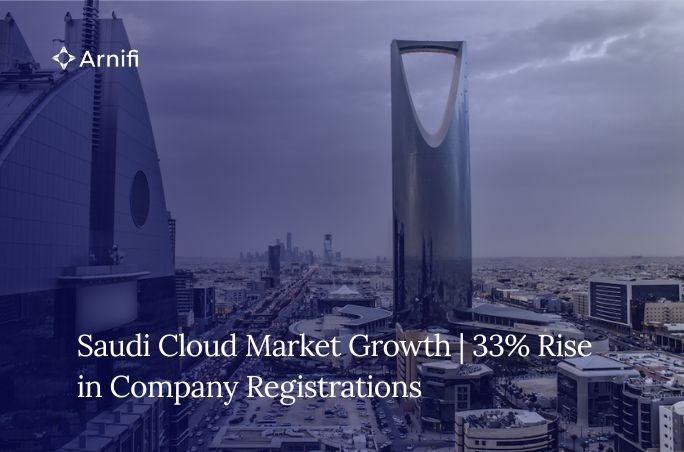The Importance of Having a Will for Non-Muslim Expats in UAE
by Manu Midha Dec 26, 2023  10 MIN READ
10 MIN READ

Overview
As an expat in the UAE, it is important to be aware of the laws and regulations surrounding estate planning. One crucial aspect of this is having a will in place. A will is a legal document that outlines how your assets will be distributed after your demise. Here, It helps ensure that your loved ones are provided for. It can also avoid potential family disputes that may arise in the absence of such planning.
In this blog, we will discuss the importance of having a will as a non-Muslim expat in the UAE. We will cover topics such as understanding the concept of a will, unique inheritance laws in the UAE. It also includes the consequences of dying without a will, importance of avoiding family disputes, updating your will regularly. Also, the impact of a well-drafted will on estate distribution and whether just having a will is enough to protect your assets. Read on to know more about safeguarding your loved ones’ future. It also includes proper estate planning with the importance of will for non-Muslims.
Understanding the Concept of a Will
A will, a legal document outlining asset distribution and provisions for minor children. This plays a crucial role in ensuring assets are distributed according to one’s wishes. Part of estate planning, it also specifies the executor’s responsibilities. So, Understanding the concept of a will is vital for non-Muslim expats in the UAE. This is especially given the unique inheritance laws and the importance of avoiding family disputes.
The Vital Role of a Will in Estate Planning
Estate planning in the United Arab Emirates holds significant importance for non-Muslim expats. Here, A will is indispensable for the organized distribution of both immovable and movable assets, including bank accounts and real estate. Moreover, it plays a crucial role in outlining guardianship arrangements for minor children as per family law. Additionally, a will ensures that assets are distributed in compliance with local laws, emphasizing the necessity of DIFC wills service center and notary public involvement.
Unique Inheritance Laws in UAE
The United Arab Emirates (UAE) enforces specific rules for inheritance matters. It is done with the local judicial department overseeing the registration of wills. Inheritance laws encompass immovable properties and also address the guardianship of minors and family members. This is why, The entire will registration process is governed by federal law, ensuring compliance with the civil code. So, Understanding these unique inheritance laws in the UAE is crucial for expats seeking to secure their assets and provide for their loved ones.
How UAE’s Laws Differ from Other Countries?
The inheritance laws in the United Arab Emirates (UAE) vary for expatriates and locals. Here, it is with expatriates being subject to the laws of their home country. Immovable assets, such as real estate, are governed by local laws. Here, DIFC Wills Service Centre manages will registration, and expatriates can also register their wills with the Abu Dhabi Judicial Department. This distinct legal framework necessitates a clear understanding of the UAE’s family law and civil code.
Consequences of Dying Without a Will (Intestate) in UAE
Dying without a will can result in family disputes and impact the guardianship of minor children. Thus, The estate will be distributed according to local UAE courts, potentially leading to complex asset distribution. Without a will, asset distribution follows UAE’s inheritance laws. this emphasizes the importance of having a will that aligns with personal intentions and family needs.
Intestacy may impact the asset distribution for the spouse, while local UAE courts will determine the guardianship of minor children. Here, Family members could encounter challenges in asset distribution, governed by probate registry rules. It also includes the local government involvement in guardianship matters. Utilizing DIFC wills, notary public, family law, and other relevant terms can streamline the process
Sharia law governs asset distribution for Muslim expatriates, following its principles. Thus, The UAE law of inheritance outlines this process, impacting immovable property distribution. The UAE courts oversee this to ensure compliance with Sharia law and local regulations. This legal framework is crucial to understand for non-Muslim expats residing in the United Arab Emirates. This is because it significantly influences estate planning and asset distribution.
Importance of a Will in Avoiding Family Disputes
A will plays a crucial role in avoiding family conflicts by clearly stating asset distribution intentions and minimizing disputes among family members. It allows for specifying the guardianship of minor children, ensuring fair asset distribution, and reducing potential posthumous conflicts. Additionally, it serves as a preventive measure against family disputes after an individual’s passing, maintaining harmony among beneficiaries. Incorporating these provisions in a will can notably mitigate the risk of family conflicts.
Clear Statement of Intentions Through a Will
A will serves as a detailed roadmap for the distribution of assets, providing clarity on the allocation of immovable and movable assets. Additionally, it outlines the guardianship of minor children. This enables individuals to express their intentions regarding asset distribution, ensuring fair treatment among family members. This legal document plays a crucial role in preventing family disputes and addressing the fair distribution of assets in accordance with an individual’s wishes.
Protection for Non-Muslim Spouses and Partners
Safeguarding the interests of non-Muslim spouses and partners, a will ensures fair asset distribution, offering financial and legal security. By providing a clear framework for asset distribution, potential disputes can be avoided. Also, a non-Muslim partners can have a say in inheritance matters. This legal document plays a crucial role in protecting the rights of non-Muslim family members, ensuring their well-being years after the individual’s passing.
Execution of Estate Distribution as Per the Will
The will acts as a legal framework for the systematic and orderly distribution of assets, ensuring that your estate is divided according to your specified instructions. By providing clarity on the distribution of immovable and movable assets. The will minimizes family conflicts and facilitates a smooth execution of estate distribution, thus carrying out your intentions effectively. This legal backing ensures that your wishes are fulfilled without causing disputes among beneficiaries.
The executor holds a crucial responsibility in executing the terms of the will, overseeing asset distribution as per its instructions. Appointed by the will, the executor ensures accurate implementation of estate distribution, acting as the legal representative to safeguard the will’s integrity. This role is essential in upholding the deceased individual’s wishes and ensuring the proper execution of asset distribution.
Securing the financial well-being of non-Muslim family members is a critical aspect of estate planning. A will ensures that non-Muslim family members are not excluded from inheritance matters and safeguards their rights by addressing their financial needs. By guaranteeing provisions for non-Muslim family members, the will offers legal protection and ensures their financial security. This aligns with your wishes and avoids potential family disputes, thus emphasizing the importance of including non-Muslim family members in your will.
Regularly Updating Your Will: Why It’s Crucial
Regularly updating your will is crucial to reflect changes in family and financial circumstances, ensuring alignment with current family dynamics and the financial situation. By addressing the impact of these changes, the will maintains accuracy and prevents outdated provisions from creating unforeseen implications. Regular updates mitigate the risks of unforeseen implications, underscoring the importance of staying abreast of developments in your life to ensure the will accurately represents your wishes.
Impact of Changes in Family and Financial Situation on the Will
Changes in family and financial circumstances often require adjustments to the will, ensuring it accurately represents your intentions. It’s crucial to reflect new family dynamics and financial status within the will to keep it relevant. By updating the will to accommodate evolving family and financial dynamics, you mitigate the risks of outdated provisions and ensure that it aligns with current circumstances.
Failing to revise your will can lead to unintended distribution of assets, potentially resulting in inaccurate allocation and financial complications. Outdated wills pose the risk of family disputes and expose assets to legal challenges, jeopardizing your intended distribution. Not updating the will may also lead to discrepancies and prevent assets from being distributed according to your wishes. It’s crucial to stay current with changes to safeguard your estate.
Impact of a Well-Drafted Will on Estate Distribution
A well-drafted will ensures efficient asset distribution, providing clarity on real estate properties and bank accounts. Proper estate planning prevents disputes and allows expats to designate guardianship of minor children. Additionally, a registered will protects family members’ rights during asset distribution. Leveraging DIFC wills and utilizing the services of the DIFC Wills Service Centre can further ensure the proper execution and registration of the will, in compliance with United Arab Emirates laws.
How a Will Influences the Distribution of Assets?
Wills play a crucial role in determining the distribution of immovable and movable assets, allowing expats to specify inheritance matters, including immovable property bringing the importance for non-Muslims. This ensures equitable asset distribution in compliance with personal status laws of the UAE, considering the local legal framework. Expats utilize wills to specify the distribution of their UAE assets as per their wishes, thus influencing asset distribution to align with their intentions.
Is Having a Will Enough to Protect Your Assets in UAE?
While having a will is essential, it’s crucial to align it with local government laws and register it with UAE courts. This is especially important for non-Muslim expats due to the legal implications of will registration and compliance with inheritance laws. Legal guidance can be necessary to ensure asset protection.
ALSO READ: Rules for Corporate Tax in UAE
Conclusion
In conclusion, having a will is crucial for non-Muslim expats in the UAE to ensure the smooth distribution of their assets and avoid potential family disputes. Understanding the concept of a will and its vital role in estate planning is essential. It is important to note that the UAE has unique inheritance laws, which differ from other countries.
Dying without a will can have significant consequences on the spouse, children, and the distribution of assets according to Sharia law. By creating a clear statement of intentions for understanding the importance of a will, non-Muslims, either partners or spouses can be protected. Regularly updating the will is also crucial to accommodate changes in family and financial situations. Ultimately, a well-drafted will plays a pivotal role in influencing the distribution of assets and protecting one’s legacy. However, it is important to note that having a will may not be enough to protect all assets in the UAE, and professional legal advice should be sought to ensure comprehensive protection.
About Arnifi
Arnifi is digital first Corporate service provider helping companies enter the Middle East region, starting with UAE and Saudi Arabia markets. Founded and backed by professionals from Amazon, Souq and other large companies operating in KSA – the team understands what it takes to succeed as a startup in both UAE and Saudi Arabian markets, apart from going through the setup process multiple times.
Arnifi will provide a truly digital experience to entry and scale up of companies both UAE and Saudi Arabia. The Arnifi promise is simple, yet revolutionary, use technology and a great team to provide transparency, efficiency and great customer experience in the whole process. Check out at – www.Arnifi.com for more details.
Top UAE Packages

Related Articles
Top UAE Packages



